Lessons from the Author Alchemy Summit
A giddy, overwhelmed conference organizer crawls back out into the light of day.
I’m still floating down from the high of something incredible. Something powerful. Something that, after the wild year I’d had in 2023, I wasn’t sure would come to fruition:
The inaugural Author Alchemy Summit!
Last weekend, about 60 of us gathered in the JupiterNEXT hotel in Portland, OR, to talk about the author business, network, and mull over the puzzle of how to connect directly with our readers.
It was amazing.
(Here’s a lovely write-up in Portland News.)
I was more focused on keeping things rolling and moderating the panels than taking notes myself, but I still got so much out of it—and I know I wasn’t alone.
These are just some of the nice comments people have written to me in the past week:
“ I have attended many writing conferences that left me feeling inspired, but this is the first time I've ever left a writing conference feeling not just energized, but focused.”
“The networking opportunities exceeded my expectations. The speakers were very engaging. I was surprised at how accessible they made themselves.”
“The size and the tone of the gathering made networking far more effective than I was expecting. It was lovely.”
“ It was the most productive conference I've attended in about 10 years.”
“Your mom makes some pretty mean cookies.”
My mom does make some pretty mean cookies. And she and my sister cooked up enough to keep everyone fueled through afternoon snacks all weekend!
The sheer breadth of content we covered in the sessions and one-on-one conversations I had will be spawning posts here for months. But today I wanted to celebrate a few key takeaways.
Overall takeaway: It’s more important than ever to own your relationship with readers
This was an author business conference, and the focus on business over craft was deliberate. There are dozens of other craft-focused conferences and workshops, and I only had a single track of programming to deal with. I didn’t want to go over territory that’s easily covered elsewhere.
That’s why we chose to dial in on one big theme this year: finding and engaging with readers.
As I worked on programming for this, I kept hearing a common theme: it’s never been easy to make a living as a writer, but it feels like things are changing even more rapidly these days.
There used to be conventionally established paths for authors. If you were trad, an agent would sell your manuscript to a publisher who would put the book out and hopefully support your launch. If you were indie, you put your books up on Amazon and worked the algorithms to hopefully get in front of readers.
On both paths, there were things you could do to build your own relationships with readers. But the relationship was mostly held by someone else: The publisher, the bookstore, the online retailer.
These days, those main established paths are fracturing.
Publishers are looking for sure bets. Online retailers are becoming increasingly crowded. The pay-to-play algorithm means it’s expensive to get your books noticed.
When I talk to both indie and trad authors, I hear worry about the capriciousness of the market. I keep hearing this fear that something invisible could shift and destroy everything you’ve built. Your publisher could consider your book dead on arrival and not support the launch. Amazon or Meta could cancel your account. Readers tastes are changing. Nobody buys X Y or Z anymore. Print books are dead. E-book are dead. AI is coming for all creative work.
But most of all, it feels like there used to be one or maybe two ways to “be a successful author,” and now there’s just a bunch of confusion as to which way to go.
I don’t think it was ever really true that there were only one or two paths—but it’s certainly not true anymore.
As the established paths I mentioned above are fracturing, there are more ways than ever before to do the most important thing an author can do: connect with our readers.
Directly.
Publishers don’t have a monopoly on reader relationships anymore. In fact, they want you to come to them with those relationships so you can market and sell your books. Same with the online retailers, who will happily gather data on the customers we send their way so they can also sell them dog food and toaster ovens.
Direct sales, kickstarters, newsletters, Patreon or Ream, reader communities—there are more ways than ever to own more of the reader’s journey and connect on a deeper level.
This isn’t new, though.
There have always been paths that don’t involve going through a middleman, and now those are becoming more accessible to authors—and more embraced by readers.
Many of the speakers and attendees at the Author Alchemy Summit built their careers by thinking outside the box when it comes to connecting with readers.
Selling books in person at cons and street fairs
Traveling the world to teach courses
Building communities where their readers could engage with others
Selling direct on their websites
Building powerful newsletters
Using Kickstarter or Patreon to build engagement
It was exciting to dig into how this had worked for them all throughout the years, and get new ideas to use in my own business!
Along with the big takeaway that it’s more important than ever to own control of your relationship with readers, there were a few surprise themes that kept coming up.
How to befriend the robots
The panel I was most nervous about including was on AI. I personally knew a lot of the attendees, so I knew there were a handful who weren’t going to love the discussion. I’d been to other conferences where such panels became shouting matches.
When I introduced the panel (consisting of J. Thorn, Tammi Labrecque, Timothy W. Long, and Blaine Moore), I made our goal explicit: I had invited experts to speak who were using AI in interesting ways to help them free up time to write books. We weren’t going to debate whether or not authors should use AI, we weren’t going to fret about what it meant for the future of the publishing industry.
We could argue about AI… but later. In the bar. Once our panelists were done sharing their insights.
I certainly expected to hear about my choice after the conference was over.
Only…
Afterward, when I asked people what their favorite panel was, the AI panel easily came out on top.
“Are you an all-time writer?”
J. Thorn tossed out a comment in the very first panel that echoed throughout the weekend: “Be careful of becoming an all time writer, instead of a full time writer.”
It was an important sentiment to keep in mind at a business-of-writing conference. I’ve talked with so many writers who are in a similar boat. Writing is something we started doing for fun, but as it turned into a business it expanded to take up as much time as we’ll give it.
After all, there’s always more to be done—more books to write, more marketing to learn, more platforms to master, more content marketing to create.
(I’m currently drafting this post on a Sunday morning, so… guilty.)
J. instead encouraged us to think of our author businesses like a day job. Meaning, something you clock out of, rather than something that consumes your entire life.
This idea came up a few times in my breakout sessions, where we talked about productivity, and strategies for reclaiming your time and not letting your business take over your life.
“Double down on being you.”
I’m 90% sure J. Thorn said this quote first, too—first panel advantage and all that. But it was echoed throughout the weekend.
Most clearly by Claire Taylor, who gave an engaging presentation about using the Enneagram to align yourself and your author career.
(Attendee Arwen Spicer wrote an excellent blog post about how this session helped her crack open a career puzzle that’s been bothering her for years.)
Your readers are out there. They’re looking for the unique flavor that only you can give them. And when you can reach them, doubling down on what makes you unique will be critical as a way to stand out in a flooded market
Food is caring!
The content and the speakers were highly received, but I think the most talked about thing of the weekend was the food.
I always find that so much of a conference’s energy is lost in the awkward shuffle of trying to figure out lunch and dinner plans. Where’s a good local restaurant? Who will you eat with? How do you ask someone to have lunch with you without sounding weird?
To avoid that, we catered breakfast and lunch both days of the conference, so that people could keep networking and talking without having to figure out where to find food.
My next door neighbor Lidia Rose directed the catering, and laid out a beautiful spread with the help of my parents, sister, and brother-in-law. We had Mexican food from Tamale Boy on Friday, and Lebanese food from Nicholas on Saturday. Both cuisines made it relatively easy to meet the majority of people’s food allergies so everyone could be included.
My mom and sister both made tons of cookies, too—people couldn’t stop talking about how good they were!
As one person wrote:
“I really loved how you set up breakfast and lunch. There was no pressure to ask the person next to you to get lunch with you, find a restaurant you both liked that was close and in your price range, or hurry to it and back. I had a lot of great, casual conversations and was able to move between groups. Plus, the food was most excellent.”
Meeting every attendee at their level
One thing I would do differently next year is to be more welcoming to new authors.
I honestly didn’t expect so many new authors to come out, given how I marketed the conference and the price point—but we had a good handful of folks who hadn’t published their first book.
Which was awesome! But that puts a bit of pressure on the programming to try to keep it at a high 401-level focus, without leaving behind folks who are newer on their journeys.
One thing I don’t want to do is sacrifice the single track of programming. As one person said, “Single track was awesome! It was so cool not having to choose where to go, and getting to share the experience and learnings with everyone was fun! Keep doing that for as many years as you can!”
Nor do I want to lower the high-level focus of the main track. But I’m already thinking through how to create more opportunities for newbies to get their questions answered next year.
For example, if we’re doing a panel on advanced newsletter automations and direct sales in the main room, we’ll have an optional beginner breakout session about crafting your lead magnet out in the lounge area.
Speaking of next year?
We’ll definitely be doing this again
And we’d love to see you there.
If you’d like to join us, sign up for the mailing list to be notified when we announce the dates.

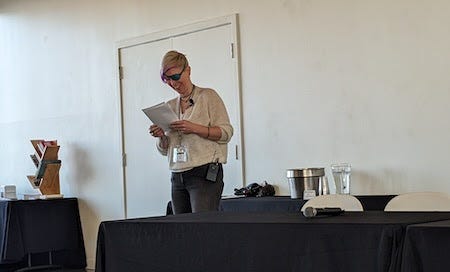



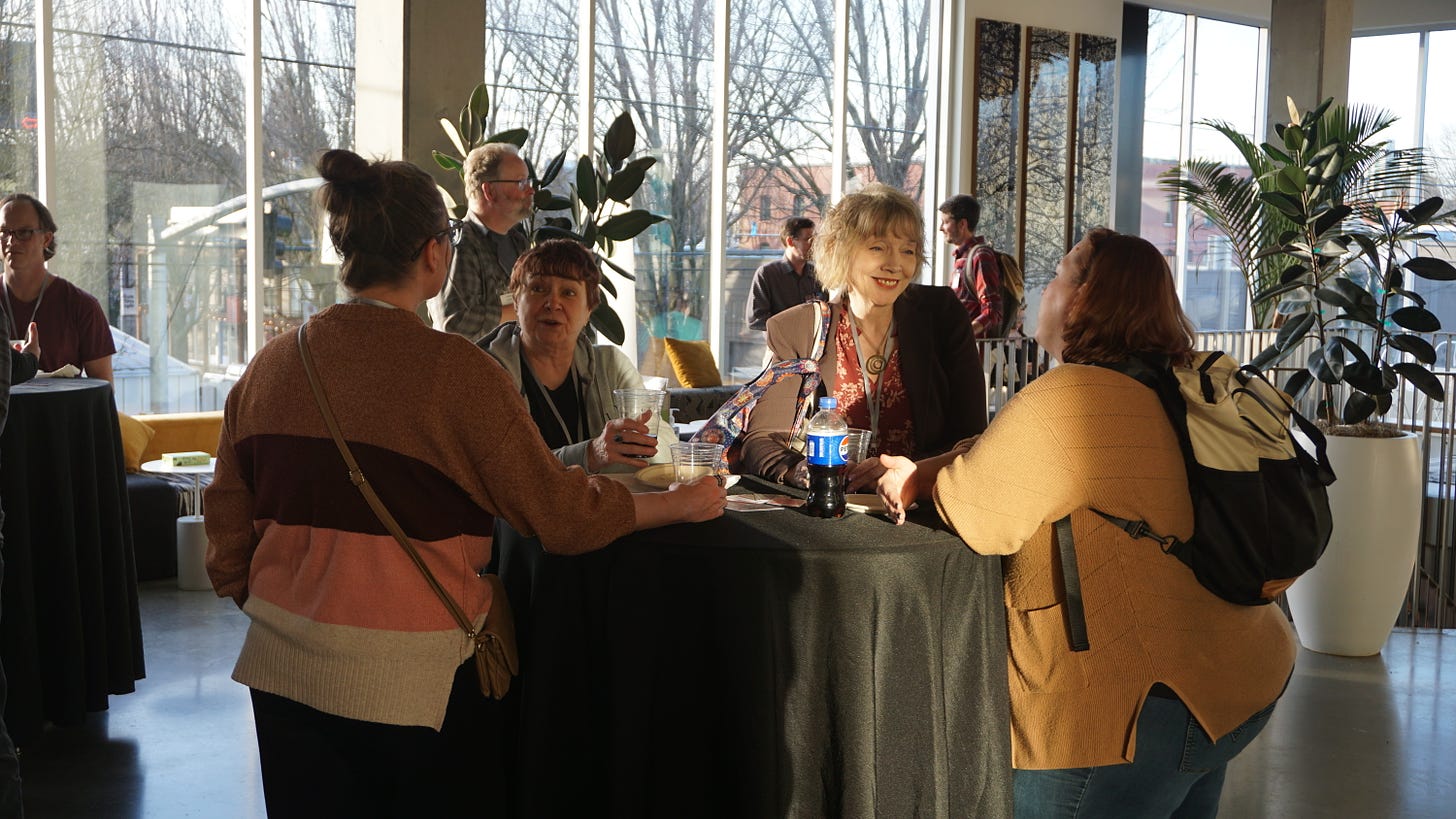
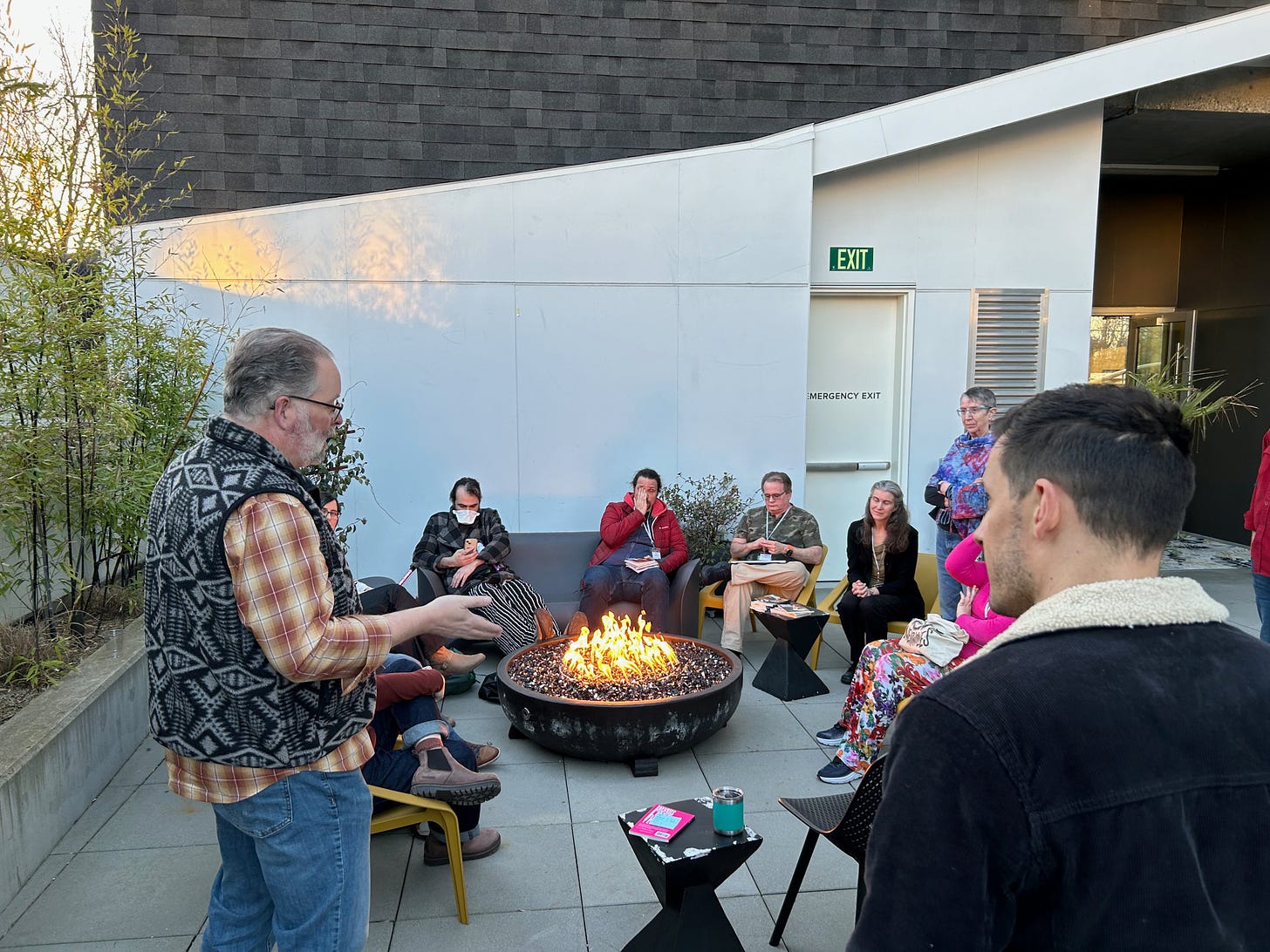
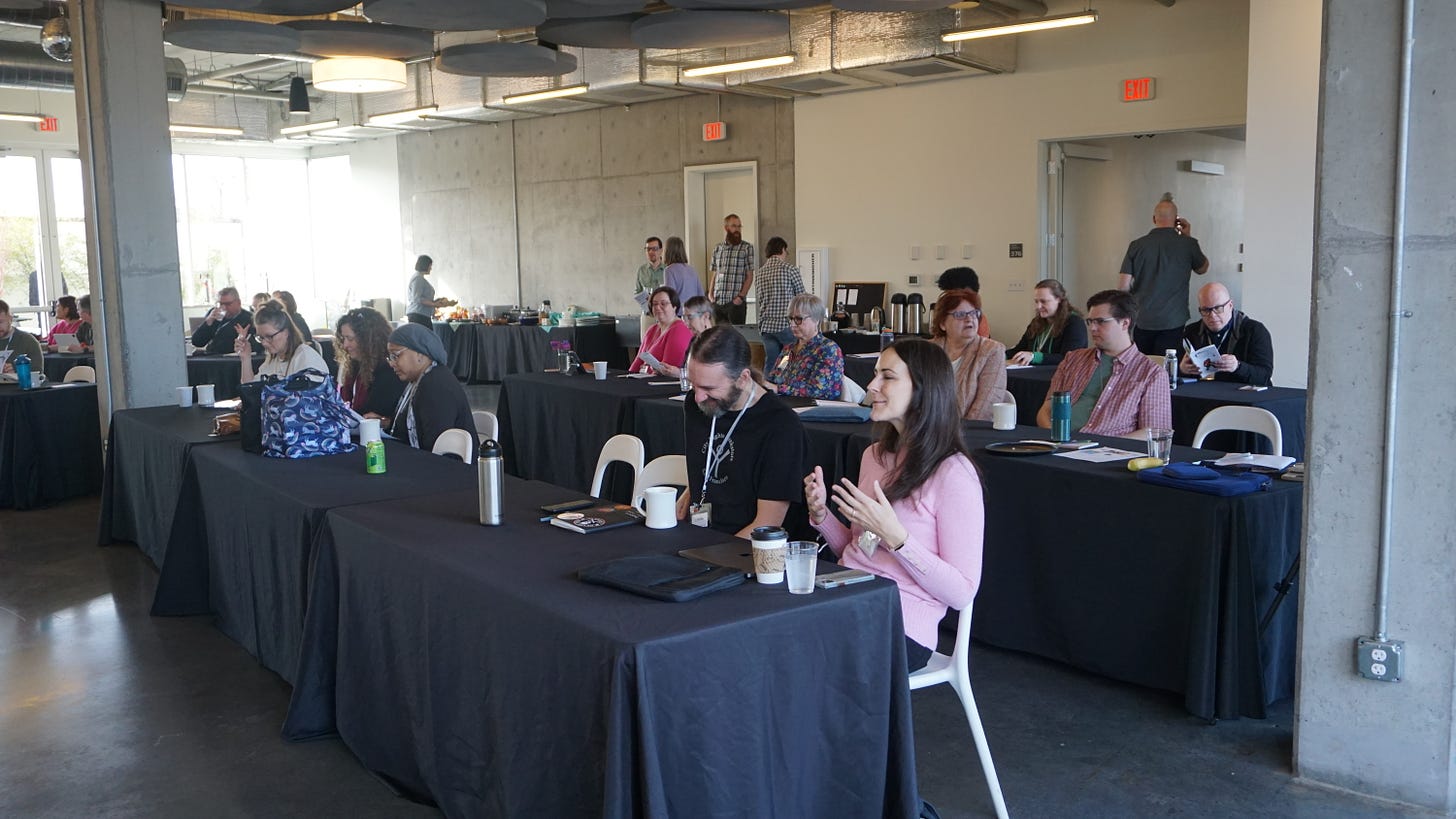
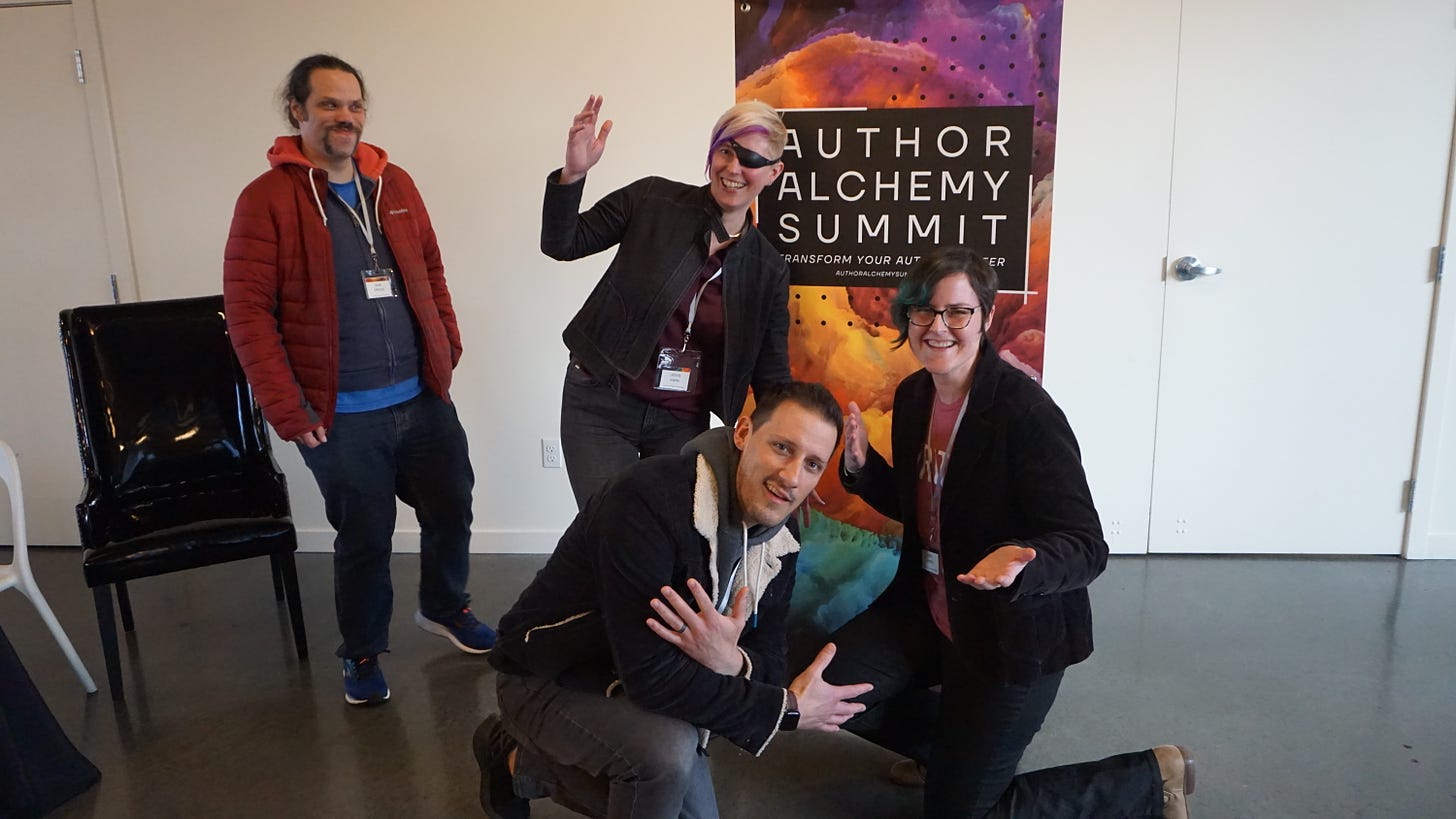
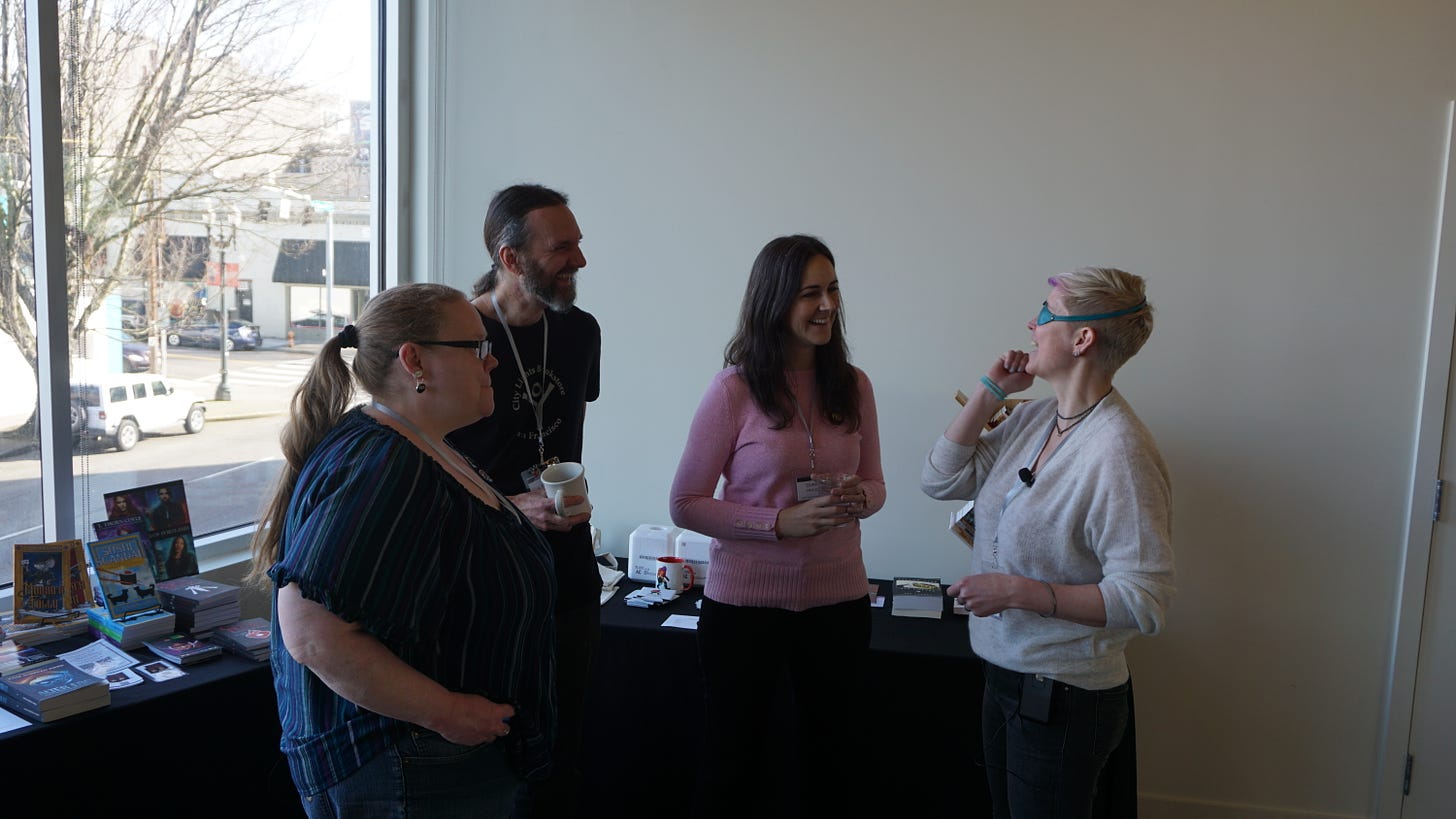
Congrats! So thrilled to see it for you! Hopefully things will work out that I can come next year. <3
Congratulations!! Putting together a conference seems like a massive amount of work. Hopefully I’ll be in attendance next year ❤️